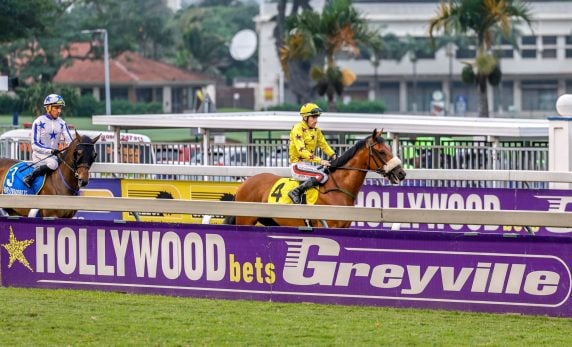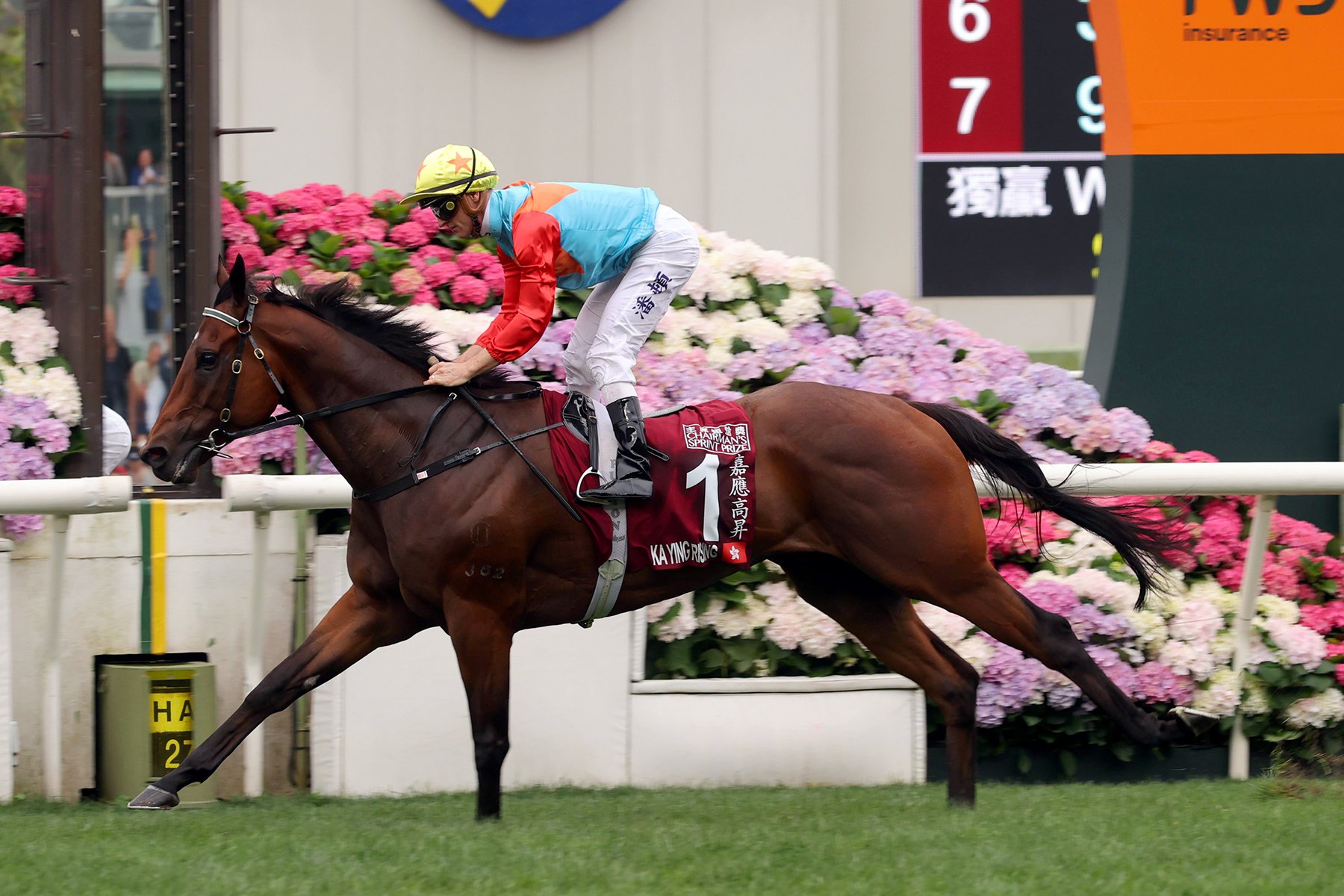Most of those slinging off following Phumelela’s stakes reduction and the revised spread of prize money don’t understand the stakes pot or the stakes formula.
So says multiple champion trainer and Racing Association Board member, Mike de Kock, in an interview published on the daily Turf Talk website newsletter.
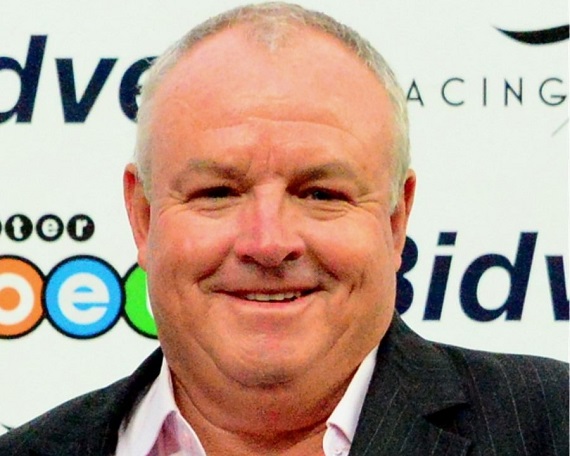
Mike de Kock has some nice runners today
De Kock said that the reason for the stakes reduction was, quite simply, the drop in betting turnover. “The reduction was unavoidable. It was a card that the RA was dealt with by Phumelela, and we came up with something we believe is a feasible temporary solution considering the circumstances.”
De Kock highlighted the effects of the Bookmakers’ so-called ‘Open Bet’ on tote betting yields.
“Racing loses a lot of its turnover to the open bet – as stated by Phumelela there is a loss to this bet of R75,000 for every million. This is problematic and it’s the cause of the rot that has set in.”
 He explained why and how the RA came to spread the stakes from 1st to 10th place.
He explained why and how the RA came to spread the stakes from 1st to 10th place.
“We looked at the stakes pot as a whole. We took millions from some big stakes races, like the Sun Met and the Premiers Challenge, and we propped up the smaller stakes races. Then we tried to redistribute the available stakes to create participation, and this is a vital point to understand. Two factors in our betting decline have been small fields and a lack of participation. Punters enjoy a wider variety and they invest more to have a better chance of winning. In an attempt to encourage participation by owners and trainers, so to achieve larger fields, we decided to pay down to 10th place. This is something that was tried in the United States and it worked. If not successful here, we will re-assess the situation and try something different. We have made work of it. We have been open-minded, looking for something new.
De Kock said that the spread of stakes to 10th place may be insignificant to some, but most significant to others.
“An owner who pays nominations and acceptance fees and whose horse participates in betting turnover is entitled to a share of the spoils. What is wrong with that? Not all of us can be winners, there will always be losers too. The winners are well taken care of with between 58 and 62% of stakes. Others should be getting a share of the action for participating An amount like R1,000 may seem paltry for 10th place in a Maiden Plate, but it will cover a bill or two. Tenth place in the forthcoming Charity Mile will be worth R10,000 and for 10th place in the Derby the connections will get R20,000.”
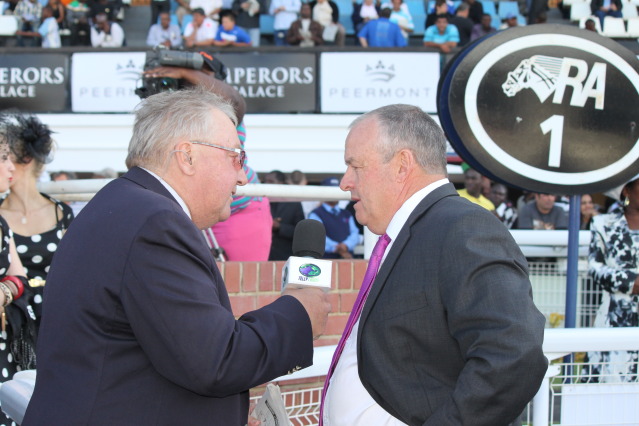
He compared a horse race to a golf tournament.
“The sponsors don’t stage golf tournaments paying the first five players only. They pay a prize up to last place, otherwise there won’t be tournaments to enjoy. They pay everyone because it creates a spectacle. It generates interest. We’re in trouble with six, seven and eight-horse fields, we need bigger fields.
“Each racing centre has its own needs. We have more participation in Gauteng. In my view the stakes pot in Cape Town shouldn’t necessarily be the same as the one in Gauteng. They can cut their cloth the way they see fit. There is no need to be derogatory and throw insults around. We all need each other, I am disappointed by the way some people have reacted. Instead of nasty comments and suggesting skulduggery, they should be coming up with constructive ideas.
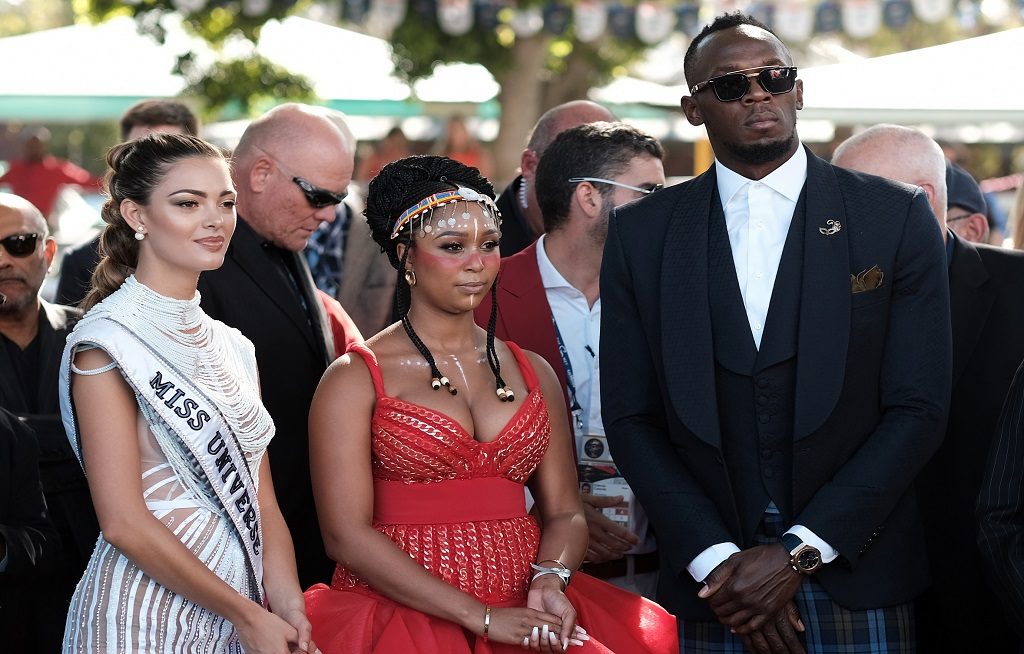
“Most of the people slinging off don’t understand the stakes pot or the stakes formula. It took me a few board meetings to understand it myself. What happened was inevitable and we had to deal with what we got.”
De Kock touched on the racehorse population and noted:
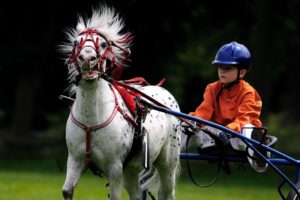 “Eighty percent of our horses are mediocre, but we need them to race, they have to get in and earn money for their owners. Most of us own battling horses, myself included, but what are we to do? These runners have to show some kind of return. Are we just going to ignore the plight of the smaller owners, or those with moderate horses? In my opinion they are just as important to racing as the owners with large strings of horses.”
“Eighty percent of our horses are mediocre, but we need them to race, they have to get in and earn money for their owners. Most of us own battling horses, myself included, but what are we to do? These runners have to show some kind of return. Are we just going to ignore the plight of the smaller owners, or those with moderate horses? In my opinion they are just as important to racing as the owners with large strings of horses.”
He urged industry players to look at the situation objectively.
“The problem is that racing people have a resistance to change, they don’t want to think out of the box. They have to see the spread of prize money in the spirit in which it was done. We have been trying to find solutions. Ours was an attempt to do something different, to offer rewards to a greater proportion of participants. We want to ease the pain so that all of us can survive.”
“What is important to note is that we are trying to make a difference, we are acutely aware of racing’s problems and we’re putting our heads together to solve them. The RA is taking action on a number of fronts. We’re taking measures to keep the machine running and to improve things for everyone, but there is no magic wand. This process will take time.”
De Kock said that some comments on social media were uncalled for.
“There are prominent racing figures criticising us, and some of them actually put their money on the open bet with bookmakers and don’t contribute to the stakes pot. We invite them to come with solutions instead of slinging off. We are all ears. We’ll welcome their input. This is a new era.”
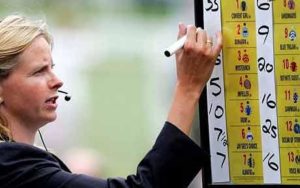
He concluded: “Most bookmakers themselves are racing people, they love the game as we do and I don’t think they want to be in this situation. But at some point they were chased away and they took a number of tote clients with them. We should be wooing them back.
“I can understand why the bookmakers are popular. They are betting professionals with great, functional websites, little downtime and effective customer service. We should be catering to the needs of our punters by improving our own service, online and on-course offering so that that they can return and contribute to tote turnover. If we don’t, racing will not survive.”
- Turf Talk






